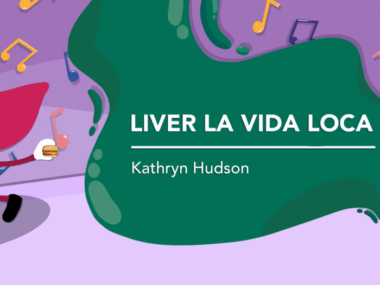US doctors prescribe Rezdiffra, note concern about patient costs
Insurance coverage isn’t enough, GI Alliance doctor says
Written by |

Physicians from the GI Alliance, the largest physician-led network of gastroenterologists in the U.S., are now actively prescribing Rezdiffra (resmetirom) to eligible people with metabolic dysfunction-associated steatohepatitis (MASH), a severe type of fatty liver disease. However, they said, affordability for patients remains a major concern.
U.S. regulators approved Rezdiffra in March for MASH patients with moderate to advanced liver fibrosis (scarring) alongside diet and exercise, making it the first and only medication cleared for this patient group in the country. It became available to patients in April.
Among the physicians prescribing the therapy is Leonard Weinstock, MD, of Specialists in Gastroenterology in St. Louis, Missouri, who noted in a press release that Rezdiffra’s clinical benefits in MASH patients are “a monumental step forward.”
Prior to its availability, the only way of managing MASH, previously known as nonalcoholic steatohepatitis, or NASH, was to prescribe lifestyle modifications like diet changes and exercise.
Still, “the high cost of the medication remains a concern,” Weinstock said. “Insurance companies must provide better coverage so more patients can benefit from this wonderful treatment.”
Price tag of $46,000 a year
Rezdiffra is priced at around $46,000 per year, according to the release. Some commercial insurance companies offer partial coverage of the medication, but many patients still face significant out-of-pocket costs, Weinstock said. He said he has patients who were told their insurance would cover only $10,000.
“This was unacceptable,” Weinstock said. “Usually, Medicare and Medicaid offer better coverage for new medications than commercial insurance; it’s crucial that we advocate for better insurance support to ensure that all patients who need this medication can access it.”
Madrigal Pharmaceuticals has said that equitable access to Rezdiffra is a top priority, given how long MASH patients have waited for an effective therapy. The company offers some financial assistance options for patients, including a copay savings program in which commercially insured patients whose insurance doesn’t fully cover Rezdiffra can pay as little as $10 per month.
Eligible patients who don’t have insurance coverage may qualify for free medication through the company’s Patient Assistance Program.
Beyond Madrigal, there are a number of third-party charitable assistance programs that may be able to help patients afford Rezdiffra, but these are not officially affiliated with Madrigal and will each have its own eligibility criteria. Examples include The Assistance Fund, the Patient Advocate Foundation, and Healthwell Foundation, according to Madrigal.
MASH is a severe form of fatty liver disease in which fat accumulation in the liver gives way to inflammation and fibrosis. Over time, this can drive irreversible liver damage and liver failure.
Rezdiffra is a once-daily oral medication designed to activate the thyroid hormone receptor beta protein, impairments in which are associated with disease progression and liver fibrosis in MASH.
In the pivotal Phase 3 MAESTRO-NASH trial (NCT03900429), Rezdiffra was associated with higher rates of MASH resolution and reductions in fibrosis relative to a placebo. More recently, trial analyses showed that oral therapy also led to improvements in health-related life quality of life.
The therapy was granted accelerated approval in the U.S., meaning that while it can be marketed, further clinical trial proof of its efficacy is needed to achieve full approval. That approval may be supported by liver outcome data from the ongoing MAESTRO-NASH study, as well as from another Phase 3 trial called MAESTRO-NASH-OUTCOMES (NCT05500222).
Rezdiffra is currently under review in the European Union, where a decision is expected in 2025.


